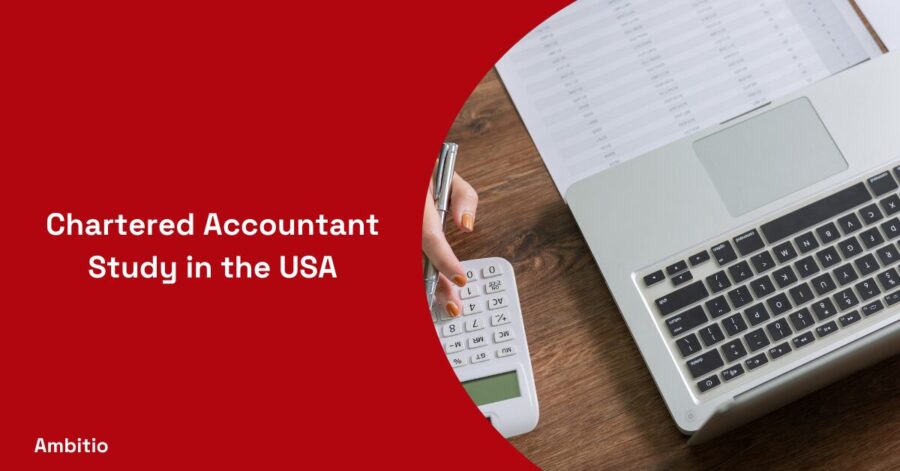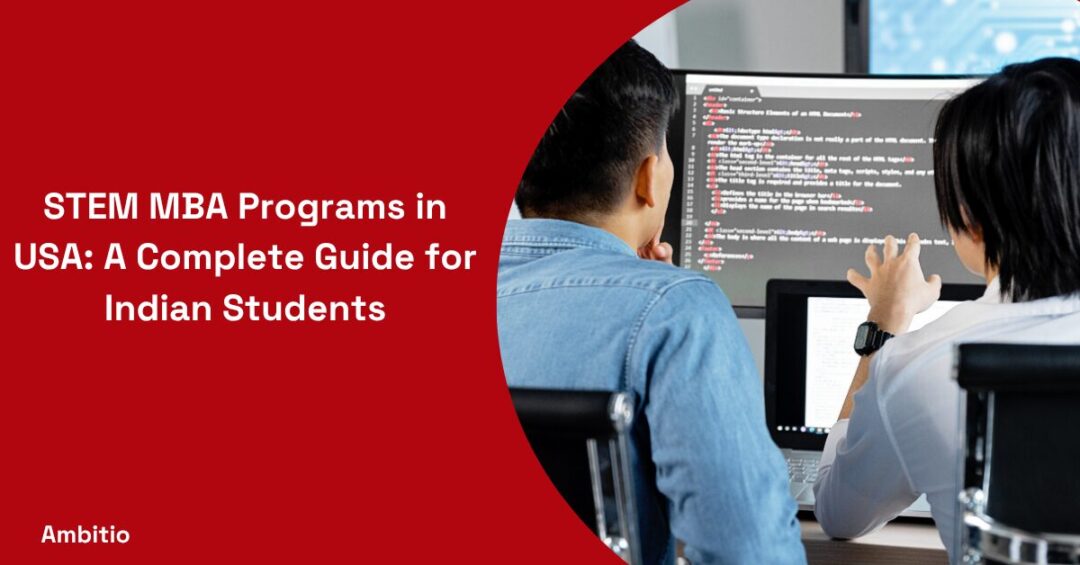15 April 2025
6 minutes read
Chartered Accountant Study in the USA

Introduction
The journey from being a Chartered Accountant (CA) to becoming a Certified Public Accountant (CPA) in the USA is a path filled with opportunities and challenges.
To succeed in this journey, having access to the right tools and information is essential. For those starting out or managing their accounting needs during the transition, utilizing a reliable accounting software can greatly simplify financial tracking and reporting.
This comprehensive guide aims to provide in-depth insights into how to make this transition, focusing on the CA course, the certification process, and the career prospects in the USA.
The CPA Charter: A Gateway to Global Opportunities in Accountancy
Understanding the CPA Exam’s Structure and Content
The CPA exam is a rigorous assessment divided into four sections: Auditing and Attestation (AUD), Business Environment and Concepts (BEC), Financial Accounting and Reporting (FAR), and Regulation (REG).
Each section tests a different aspect of accounting knowledge and skills. The AUD section evaluates your understanding of the auditing process, while BEC focuses on business concepts and financial management.
FAR tests knowledge of financial accounting and reporting, and REG covers business law and taxation. Preparing for these exams requires a deep understanding of each area, commitment, and strategic study planning. The exam’s comprehensive nature ensures that CPAs are well-equipped to handle various challenges in the accounting profession.
Eligibility and Educational Requirements for CPA
Becoming a Certified Public Accountant (CPA) in the USA requires meeting specific educational and eligibility criteria. These requirements vary slightly by state but generally include the following key points:
- Educational Qualifications:
- Bachelor’s Degree: A four-year bachelor’s degree from an accredited university is typically required as a foundational educational qualification.
- 150 Semester Hours: Most states require candidates to have completed 150 semester hours of college coursework. This often exceeds a standard bachelor’s degree, necessitating additional courses or a master’s degree.
- Accounting and Business Coursework:
- Accounting Courses: A certain number of credit hours in accounting is mandatory. This includes courses in financial accounting, management accounting, auditing, and taxation.
- Business-Related Courses: Candidates must also complete credit hours in business-related subjects such as finance, business law, and information systems.
- State-Specific Requirements:
- Each state in the USA has its own Board of Accountancy that sets specific requirements for CPA candidates. These requirements can include specific coursework, ethics exams, or residency requirements.
- Each state in the USA has its own Board of Accountancy that sets specific requirements for CPA candidates. These requirements can include specific coursework, ethics exams, or residency requirements.
- International Education:
- For candidates with international education, credentials must be evaluated by a recognized agency to ensure they meet U.S. standards.
- Some states have reciprocity agreements with certain countries, which may ease the process for international CAs.
- Ethics Exam:
- Some states require candidates to pass an ethics exam, in addition to the CPA exam, as part of the licensure process.
- Some states require candidates to pass an ethics exam, in addition to the CPA exam, as part of the licensure process.
- Social Security Number:
- Many states require candidates to have a U.S. Social Security number to apply for the CPA exam.
- Many states require candidates to have a U.S. Social Security number to apply for the CPA exam.
- Good Moral Character:
- Candidates must demonstrate good moral character, which typically involves a background check and disclosures of any past criminal activities.
- Candidates must demonstrate good moral character, which typically involves a background check and disclosures of any past criminal activities.
- Work Experience:
- Work experience under a licensed CPA is a requirement in many states. The required duration can range from one to two years.
- Work experience under a licensed CPA is a requirement in many states. The required duration can range from one to two years.
- Age Requirements:
- Some states have a minimum age requirement, usually 18 or 21 years old, to sit for the CPA exam.
- Some states have a minimum age requirement, usually 18 or 21 years old, to sit for the CPA exam.
- Citizenship and Residency:
- Citizenship is not always a requirement, but some states require residency or have specific regulations for non-residents.
- Citizenship is not always a requirement, but some states require residency or have specific regulations for non-residents.
- Continuing Professional Education (CPE):
- After obtaining the CPA license, continuing professional education is required to maintain the license. The amount of CPE varies by state.
- After obtaining the CPA license, continuing professional education is required to maintain the license. The amount of CPE varies by state.
Understanding these requirements is crucial for anyone planning to pursue the CPA designation in the USA. Prospective candidates should research the specific requirements of the state where they intend to practice to ensure compliance and successful licensure.
Transitioning from Chartered Accountant to CPA in the USA
Bridging the Gap: Additional Courses and Training
For international CAs, especially, there may be a need to take additional courses to meet the 150-semester-hour requirement. Many universities and online platforms offer bridging courses tailored to these needs.
These courses focus on U.S. GAAP, U.S. federal taxation, and business laws – areas that might not be covered extensively in international CA courses. This additional training is not only vital for meeting eligibility requirements but also essential for acclimatizing to the specifics of American accountancy practices.
The Role of Internships and Practical Experience
Gaining practical experience in the U.S. accounting industry can be highly beneficial for CAs transitioning to CPAs. Internships or trainee positions in accounting firms provide hands-on experience in U.S. accounting practices, taxation, and business laws.
This experience is invaluable, not only for enhancing your resume but also for giving you a real-world insight into the daily workings of an American accountant.
Academic Pathways and Resources for CA to CPA Transition
Navigating Through the Best Universities and CPA Preparation Courses
The USA is home to many prestigious universities offering courses tailored for CPA preparation. These institutions provide comprehensive programs that cover all aspects of the CPA exam.
Additionally, several online resources and coaching centers offer specialized CPA preparation courses. These courses are designed to help students from various backgrounds, including international CAs, to understand and excel in the CPA exam.
Understanding State-Specific Requirements
It’s crucial to understand that CPA licensing is state-specific. Each state in the USA has its own set of rules and requirements for CPA licensure. This means that the requirements in California might differ from those in New York. Prospective CPAs should research and select a state that aligns best with their educational background and career goals.
Career Prospects and Professional Growth as a CPA
The CPA qualification opens up a plethora of career opportunities across various industries. As a CPA, you can venture into traditional fields like audit and taxation, or specialize in niche areas such as forensic accounting, environmental accounting, international accounting, or information technology auditing. Each specialization offers unique challenges and opportunities for professional growth.
- Public Accounting: CPAs in public accounting firms handle audits, tax preparation, and consulting for businesses, individuals, and government organizations. Career progression can lead from staff accountant to senior accountant and eventually to managerial roles such as audit manager or tax manager.
- Corporate Accounting: In the corporate sector, CPAs often start as staff accountants, advancing to roles like financial analysts, controllers, and chief financial officers (CFOs). They are responsible for financial reporting, budgeting, and internal financial management.
- Government and Nonprofit Sector: CPAs in government agencies and nonprofits work in financial management, auditing, and compliance roles. Opportunities exist in local, state, and federal government agencies, including the IRS and the FBI.
- Forensic Accounting: This specialization involves investigating financial fraud and disputes. Forensic accountants often work with law enforcement or legal teams, providing expertise in court cases and legal disputes.
- Environmental Accounting: This emerging field involves accounting for environmental costs and implementing practices for sustainable business operations.
- Information Technology Auditing: IT auditors assess the controls and risks associated with an organization’s information technology infrastructure.
The Importance of Networking and Professional Associations
Networking is a crucial aspect of career development for CPAs. Building a professional network through associations like the American Institute of CPAs (AICPA) or state CPA societies offers numerous benefits:
- Continuing Education: CPA associations provide resources for continuous learning, including webinars, workshops, and conferences. This ongoing education is essential for maintaining the CPA license and staying updated on industry changes.
- Mentorship Opportunities: Networking events can connect you with experienced professionals who can offer guidance and mentorship, helping in career advancement and decision-making.
- Job Opportunities: Professional networks often provide access to job openings and career opportunities that are not widely advertised.
- Industry Insights: Membership in professional bodies offers insights into emerging trends, regulatory changes, and best practices in the field of accountancy.
Continuous Professional Development (CPD) and Certifications
CPAs are required to engage in Continuous Professional Development (CPD) to maintain their license. This commitment to lifelong learning ensures that CPAs keep their skills sharp and knowledge current.
CPAs might also pursue additional certifications like Certified Information Systems Auditor (CISA), Certified Management Accountant (CMA), or Certified Fraud Examiner (CFE), depending on their career interests and goals.
The Role of Technology in Accounting
In today’s digital age, proficiency in accounting software and technology is crucial. CPAs need to stay abreast of technological advancements like cloud accounting, blockchain, and data analytics. Embracing technology not only enhances efficiency but also opens new avenues for service offerings and consulting.
Leadership and Management Roles
Experienced CPAs have the opportunity to ascend to leadership and management roles. These roles involve strategic planning, decision-making, and leading teams.
Positions like CFO or Finance Director are often the pinnacle of a CPA’s career in corporate settings, involving broader business responsibilities beyond just accounting.
Entrepreneurial Opportunities
CPAs with an entrepreneurial spirit may choose to establish their own accounting firms. This path offers autonomy and the opportunity to build a client base across various sectors. It requires business acumen, networking skills, and a deep understanding of the market needs.
Global Career Opportunities
The CPA qualification is highly regarded worldwide. This global recognition opens doors for international career opportunities, allowing CPAs to work in different countries and cultures, further broadening their professional and personal experiences.
Conclusion
The transition from a Chartered Accountant to a Certified Public Accountant in the USA requires dedication, strategic planning, and a thorough understanding of the U.S. accounting system.
This journey, while challenging, opens doors to a world of opportunities in the global accounting landscape. By meeting the educational requirements, preparing diligently for the CPA exam, and exploring the diverse career paths available, CAs can successfully make this transition and excel in their accounting careers in the USA.
FAQs
Q1: How long does it typically take for an international CA to become a CPA in the USA?
It varies, but typically, it can take 2-3 years, including meeting educational requirements, exam preparation, and passing all four sections of the CPA exam.
Q2: Can international CAs get exemptions in any part of the CPA exam?
No, international CAs must fulfill the same requirements as U.S. candidates, including passing all four sections of the CPA exam.
Q3: What is the average salary for a CPA in the USA?
Salaries vary based on location, experience, and specialization. However, CPAs generally have a higher earning potential compared to non-certified accountants.
Q4: Is work experience required before taking the CPA exam?
Work experience is not required to sit for the exam, but it is typically required for licensure after passing the exam. The amount of required experience varies by state.

You can study at top universities worldwide!
Get expert tips and tricks to get into top universities with a free expert session.
Book Your Free 30-Minute Session Now! Book a call now




























